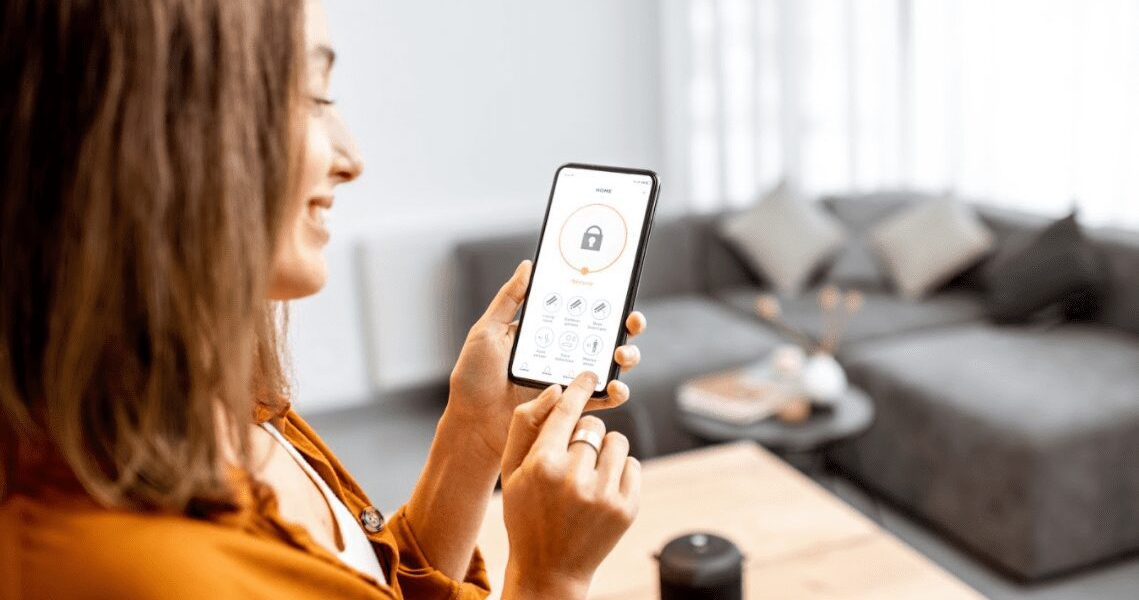It’s hard to imagine a life without our mobile phones. In just a few seconds, we can access a whole wealth of information, hold business calls, or access files, photos, or documents.
Yet with the growing dependency on mobile phones and the growing advances in technology, it is crucial to prioritize the security of your mobile phone to prevent unauthorized access, ransomware, or identity theft.
Within this guide, you will discover the importance of protecting your mobile device from hackers.
Understanding Mobile Vulnerabilities
Mobile devices face many threats that can jeopardize the OS and personal data stored on them. Due to the majority of the population having access to a smartphone, these devices have become a popular target for cybercriminals.
What Are the Common Threats to Mobile Devices?
Malware
One of the most common threats to iOS and Android devices is malware. Popular forms of malware include viruses, spyware, and ransomware.
Once cybercriminals install malware on your device, they can access sensitive information, monitor activity or hold your data until their victim pays them a ransom. Common ways malware can find its way on your device include:
- Apps: Cybercriminals may disguise malware as malicious apps which download malware to the user’s device
- Malicious ads (Malvertising): Unsecure websites can host ads that, once clicked, are redirected to a website that exploits vulnerabilities or install malware
- Drive-by downloads: This type of malware redirects the user to a website that automatically downloads malicious software to the device
To avoid malware being installed on your phone, ensure any apps you download are from the official app store, and for added protection, you can download reputable and trusted anti-virus software specializing in mobile security.
Risk of Public Wi-Fi and Unsecured Networks
Anytime you use Wi-Fi in public spaces, especially in cafes or airports, it poses significant threats to mobile security. The data sent over these networks are not encrypted, meaning cybercriminals can intercept and view this data much easier than they could over a secure network.
Once intercepted, hackers can view and use the information the network sends, including personal or financial information, to commit identity theft, fraud or sell the information on the dark web.
To ensure maximum protection for your device when using public Wi-Fi, avoid visiting and using a website that requires you to send personal information on an unsecured network. The best practice in this situation would be to use a well-known and trustworthy VPN.
Setting up Device Protection
Safeguarding your mobile is crucial to keep your device’s personal information and data safe. When you take measures to protect your phone, you protect your future safety against attacks from cybercriminals.
Here are some steps to secure personal data on your mobile device.
Regularly Updating Your Device
Staying on top of your device’s security and software updates is vital in ensuring you are using the most up-to-date and secure software.
When a phone update is released, it fixes bugs or other issues that may affect how your device runs. Occasionally, a company will release a security update that fixes vulnerabilities in the system that cybercriminals can exploit to steal your information or download malware.
Therefore, it is vital to keep up to date with new updates released on your device and install them immediately. If you are using out-of-date software, the chances of compromised personal data on your mobile increase drastically.
Encrypting Your Mobile Data
Encrypting your mobile device’s data is one of the most effective ways to secure your data. Encryption is a secure method to protect your Personal Identifiable Information (PII), such as messages or emails. When this information is encrypted, it renders the data unreadable to hackers and inaccessible without the decryption key – which only you have access to.
Most mobile devices have encryption features built into their operating system, which you can access from settings. If you choose to implement this feature, you must set a strong password and remember it, as your device will ask you for it each time.
It is also worth encrypting your data and backing it up if you lose or forget your password, as some devices will erase the data after several incorrect attempts by either yourself or a cybercriminal.
Backing Up Your Data
Backing up your mobile device is one of the most effective ways to protect your data should something happen to your phone, such as theft, data loss, damage, or software issues.
You can back up the data on your mobile device via settings on your Android or iOS device, allowing you to restore your data to a new or existing device with its most recent files. The benefit of this is that you won’t lose vast amounts of data, as you will have access to the most recent version of your files.
For an extra layer of security, you can back up your files to a reliable and secure cloud storage provider. The best cloud storage solution for your files is a service that uses zero-knowledge encryption and encrypts your files at rest and in transit. This ensures you are the one who is in control of who is authorized to view your data.
Backing up your mobile data is a simple yet effective technique that protects against data loss and ensures your critical information remains secure and accessible.
The Importance of Securing Personal Data on Your Devices
Many people often overlook mobile device security until an attack happens, and by then, it may be too late, depending on the magnitude of the attack.
Despite these risks, we can prevent attacks on our data by increasing our awareness of security risks and adding multiple layers of security to our mobile devices to prevent unauthorized access to our personal information and sensitive data.
